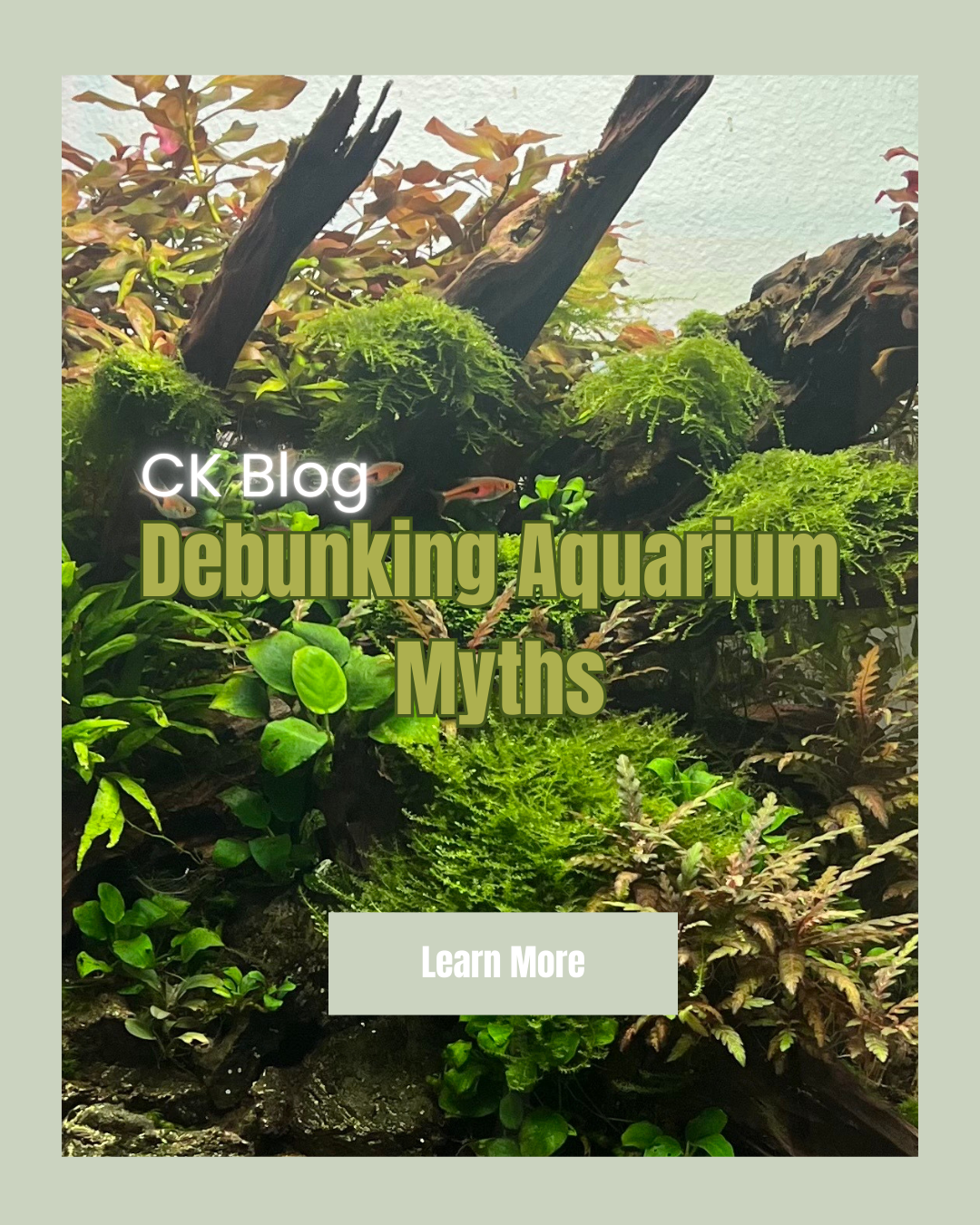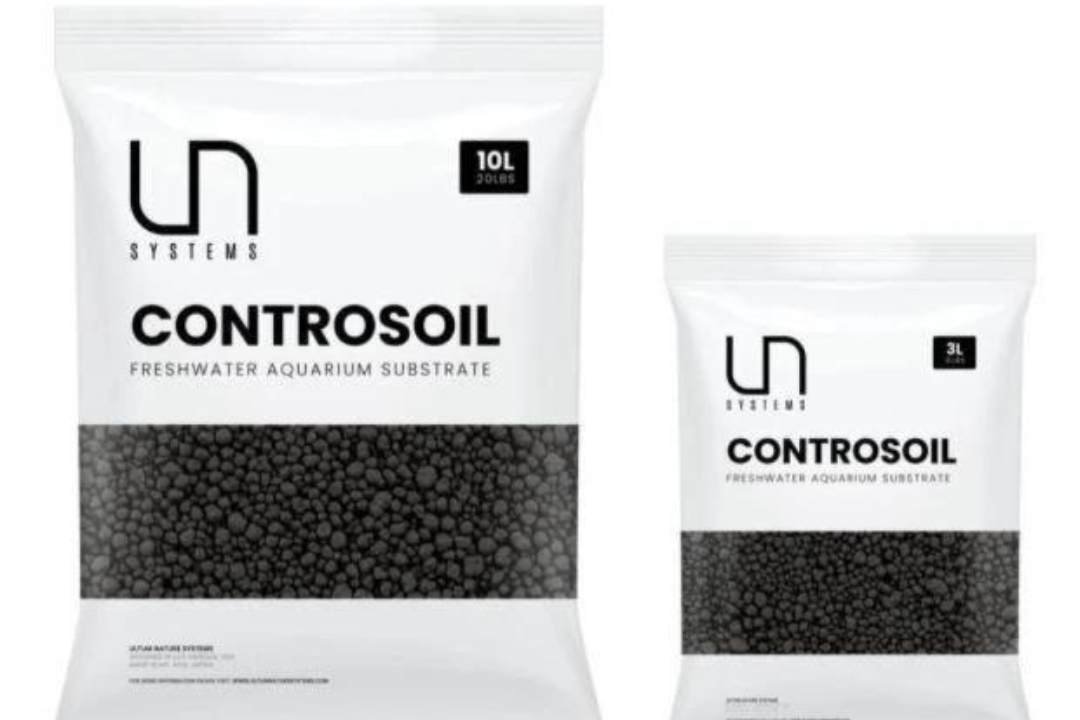This offer is valid for online purchases only, not valid at in-store location.

There are several misconceptions in the aquarium hobby that can lead to poor practices, particularly among beginners. Common myths include the belief that fish don’t require a day-night cycle, that daily feeding is essential, or that water changes are only necessary when the tank appears dirty. Additionally, many assume smaller tanks are easier to manage. In this post, we’ll address and debunk these myths to help you create a healthier, more balanced environment for your aquatic pets.

Myth #1: Aquarium Fish Don’t Need a Day-Night Cycle
The idea that fish don’t need a day-night cycle is a common myth, but it’s important for their health and well-being. Just like humans and other animals, fish have a natural rhythm that’s controlled by light and dark. In the wild, fish are exposed to sunlight during the day and darkness at night, which helps them know when to eat, rest, and be active. This cycle is called a circadian rhythm, and it plays a big role in keeping their bodies functioning properly.
When fish don’t have a proper day-night cycle in their tank, they can become stressed and confused. Without the natural change between light and dark, their internal clock gets out of sync, and this can lead to unusual behavior, like not eating or being overly active at odd times. Over time, this stress can weaken their immune system and make them more likely to get sick.
To make sure your fish stay healthy, it’s essential to mimic the day-night cycle they would experience in the wild. You can do this by providing 8-12 hours of light each day, followed by 12-16 hours of darkness. Using a timer for your aquarium lights will help create a consistent schedule, just like the natural cycle, and keep your fish happy and healthy.

Myth #2: All Aquarium Fish Need to Be Fed Every Day
The myth that fish need to be fed every day is not entirely true. While it’s important to feed fish regularly, overfeeding can actually harm them. Many fish species can go without food for a day or two without any issues, especially if they’re healthy and live in a well-established tank. In fact, feeding fish every day can lead to overfeeding, which results in poor water quality and health problems, such as obesity or digestive issues.
Some fish, like bettas or goldfish, can actually benefit from fasting for a day or two each week to help their digestive system stay healthy. In a properly maintained tank with stable water conditions, fish can survive without daily feeding, and it can even help keep the water cleaner. It's more important to focus on feeding your fish the right amount, based on their specific needs, and avoid feeding them too often.
Ultimately, it's key to observe your fish and understand their feeding habits. Some fish are grazers and prefer smaller amounts of food throughout the day, while others eat larger meals less frequently. Instead of feeding them every day, a feeding schedule that suits the type of fish you have, along with regular water maintenance, will keep your aquarium environment in balance.

Myth #3: You Only Need to Change the Water When It Looks Dirty
The idea that you only need to change your aquarium water when it looks dirty is a myth that can lead to poor water quality and unhealthy fish. While it’s true that dirty water may be a sign that your tank needs attention, waiting until it looks dirty can be harmful to your aquatic pets.
Water quality is crucial for fish health, and harmful substances like ammonia, nitrites, and nitrates build up in the tank over time, even if the water looks clear. These chemicals can be toxic to fish and other aquatic life, leading to stress, illness, or even death. Simply because the water looks clean doesn’t mean it’s safe for your fish. Regular water changes help remove these harmful substances and maintain a healthy environment.
A good rule of thumb is to change 10-20% of the water every 1-2 weeks, depending on the size of your tank and the number of fish. This helps keep the water parameters stable, reduces waste buildup, and provides fresh water that supports your fish's health. Regular water changes, along with proper filtration, will help keep your tank clean and your fish thriving, long before any visible signs of dirt appear.

Myth #4: A Smaller Aquarium is Easier and More Beginner Friendly
The myth that smaller aquariums are easier to maintain and care for is misleading. While it might seem like a smaller tank would require less effort, the reality is that smaller aquariums can actually be more challenging to manage.
In a small tank, there is less water, which means there’s less room for the fish waste and debris to be diluted. This can cause water quality to fluctuate quickly, and harmful substances like ammonia and nitrates build up faster. Even small changes in water parameters, such as temperature or pH, can have a bigger impact on fish in a small tank, making it harder to maintain a stable and healthy environment.
Larger aquariums, on the other hand, offer more room for fish to spread out, and the water parameters are less likely to shift dramatically. This means that water changes and maintenance are generally easier to manage, and it’s easier to keep the tank balanced and stable.
While smaller tanks may seem simpler, they often require more frequent monitoring and more precise care. So, if you're just starting out, a larger aquarium can actually be easier to maintain in the long run.
In conclusion, understanding the truth behind these common aquarium myths is essential for creating a healthy, thriving environment for your fish. Fish do need a day-night cycle, feeding them daily isn’t always necessary, water changes should be done regularly—not just when the tank looks dirty—and smaller aquariums can actually be more difficult to maintain than larger ones. By unlearning these myths and adopting proper care practices, you'll be on your way to enjoying a cleaner, more stable aquarium that supports the well-being of your aquatic pets. With the right knowledge and care, you can ensure your fish live long, healthy lives in a beautiful and balanced tank.
Please leave your thoughts and comments below!!
If you have any additional questions regarding this article please reach out to us via Facebook or at info@ckfishworld.com

